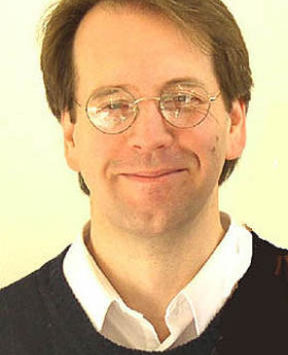It has been almost a year-and-a-half since podcasting was invented, and most everyone on this planet is still trying to understand what it is. Major media, blogs, and podcasts all over the world have hyped the phenomena, yet understanding still has not reached the majority of people.
It is interesting that I am hearing less media hype now about podcasting. The research is starting to show that only 30 percent of iPod users have ever heard a podcast. This same research is showing that a majority of podcasts are being heard today from the PC via places like Yahoo Podcasts, iTunes, and the Web via streaming media players like WinAmp and the Wimpy flash-based players.
I use the term phenomena because it implies a paranormal level of attention. We are seeing that most people just have not gotten the message yet about what podcasting is and how it was intended to work.
Here is the most recent definition of podcasting that I have seen online at the Wikipedia:
Podcast (pôdk_st ) n. 1. A digital recording of a radio broadcast or similar program, made available on the internet for downloading to a personal audio player.
This definition is really not much different than regular streaming media or direct downloading of a media file to your computer, and then dropped on your portable media player.
The part of Podcasting that really sparked the imagination and hype from the major media and technology geeks was the automated process of using an RSS feed to make the delivery of an audio podcast media file directly to a portable media player. This process is automatic and without any effort on the part of the listener. The truth is that very few people actually use this process to listen to Podcasts. Most listen to Podcasts as it streams from Podcast blog sites and Podcast aggregators like iTunes and Yahoo Podcasts.
I believe that the future will keep getting brighter for podcasting as an automated delivery process to iPods and other mp3 player devices, but feel that the much more significant piece of the podcasting hype is about content. We have seen an explosion of new content online. This is the real significant area of growth that has happened. We all know that podcasting has helped Steve Jobs sell more iPods.
Where does Mobilcast fit into this mix of opportunity? Well, let’s look at my definition of a Mobilcast:
Mobilcast (mobilk_st ) n. 1. A digital recording of a radio broadcast or similar program, made available on the Internet for streaming or downloading to a personal mobile phone with an audio player.
Mobilcast Optimized Audio Program is shorter in length (up to 10 minutes) than a typical podcast. It is a high-value, topic-driven content that needs to address an immediate personal, professional, emotional or timely need on the part of the mobile phone listener. Mobilcast has high production quality and is structured to get the listener engaged early in content the listener is highly interested in hearing.
I hope you see the difference in positioning of the thought around mobilcast and the variation on podcasting. I see the difference as not a rebranding of Podcasting, but as a refocusing on what the listener needs in content for a truly mobile audio listening device — the cell phone.
We all see the mobile phone as an audio device today, and a mobilcast is an optimized audio listening experience on an interactive audio device. The concept of interactive listening is an interesting clue as to our future vision. Wow, what a concept to have interactive audio mobilcasts on an interactive audio device.
Have you mobilcasted Today? Give it a try.
If youre interested in podcasting, Dana Greenlee, our regular Friday technology columnist, will be the featured speaker at the City Club of Tacoma meeting Feb. 22. The topic is Podcasts — What You Need to Know About This New Form of Communication, conducted as a roundtable at noon at Centro Latino, 1208 S. 10th Street in Tacoma. For more information, visit http://www.cityclubtacoma.org .






